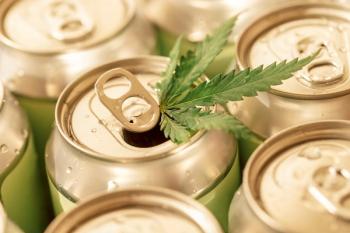
Repeated Cannabis Use May Lead Cavities and Other Tooth Decay, According to New Study
A recent study may show a potential connection between frequent cannabis use and cavities and tooth decay.
A recent study conducted by Ellyce Clonan, DDS, a researcher from the University at Buffalo School of Dental Medicine (Buffalo, New York), discovered that
The press release (1) mentioned that to acquire the data needed for the study,
Clonan found that in participants who disclosed they smoked cannabis for at least once a month and for more than a year showed an increase of 17% of getting cavities. They also had an increased risk of 55% for root surface caries and a 41% chance of developing severe tooth loss. These risks were compared to patients who did not smoke cannabis (1).
“The surveys only focused on smoking cannabis, not other use such as edibles,” Clonan explained (1). “When you smoke cannabis, you’re literally putting fire near your mouth, which is never good. It causes dry mouth, which can lead to tooth decay. Saliva protects you from dental caries.”
As mentioned in the press release, there were two additional factors that may play a role in the creation of cavities and lead to tooth loss. They were sugary foods and drinks, and high-fat snacks and poor brushing habits may be likely when under the influence of cannabis (1).
“I saw a gap in the dental research compared with the medical field,” Clonan commented (1), “so I decided to pursue this study.”
The data from the study was all self-reported by the participant so FRC use may be higher than what the surveys showed.
“Someone in New York might be more forthcoming compared to someone in Alabama who might worry about who is looking at the survey,” Clonan said (1).
The press release detailed that FRC cannabis use has been on the rise, “Cannabis use in adults 65 and older jumped by 75% over a three-year period, according to a recent report in the Journal of the Medical Association (JAMA). Meanwhile, according to a 2023 study by the National Institute on Drug Abuse, the percentage of young adults (ages 19-30), who reported past-year marijuana use and daily marijuana use reached their highest levels ever.” Additionally, Clonan doesn’t want to (1) “convey that the drug is inherently bad and patients shouldn’t use it. Cannabis, she pointed out, can serve as a therapeutic agent for numerous diseases and disorders — from cancer to anxiety.”
“Yes, we want to educate our patients about the dangers of smoking, but we want to treat their use with kindness and understanding,” Clonan explained (1). “The results of the survey also indicate we need to tailor our advice.”
Clonan hopes to work on a longitudinal study that will include additional surveys and interviews with participants to dig further into a possible connection between cannabis use and oral health (1).
“This recent study was just a snapshot in time, so we can’t completely determine cause and effect of the cannabis use and the caries and tooth loss,” Clonan said (1). “More research is definitely needed.”
References
- Frequent cannabis use can lead to cavities, severe tooth loss, according to UB Study
https://www.buffalo.edu/community/neighbors/stay-healthy.host.html/content/shared/university/news/news-center-releases/2025/02/cannabis-tooth-decay-study.detail.html (accessed Feb 13, 2025). - Clonan, E.; Shah, P.; Cloidt, M.; and Laniado, N., Frequent recreational cannabis use and its association with caries and severe tooth loss: Findings from the National Health and Nutrition Examination Survey, 2015-2018
https://www.sciencedirect.com/science/article/abs/pii/S0002817724005890 (accessed Feb 13, 2025).
Newsletter
Unlock the latest breakthroughs in cannabis science—subscribe now to get expert insights, research, and industry updates delivered to your inbox.



